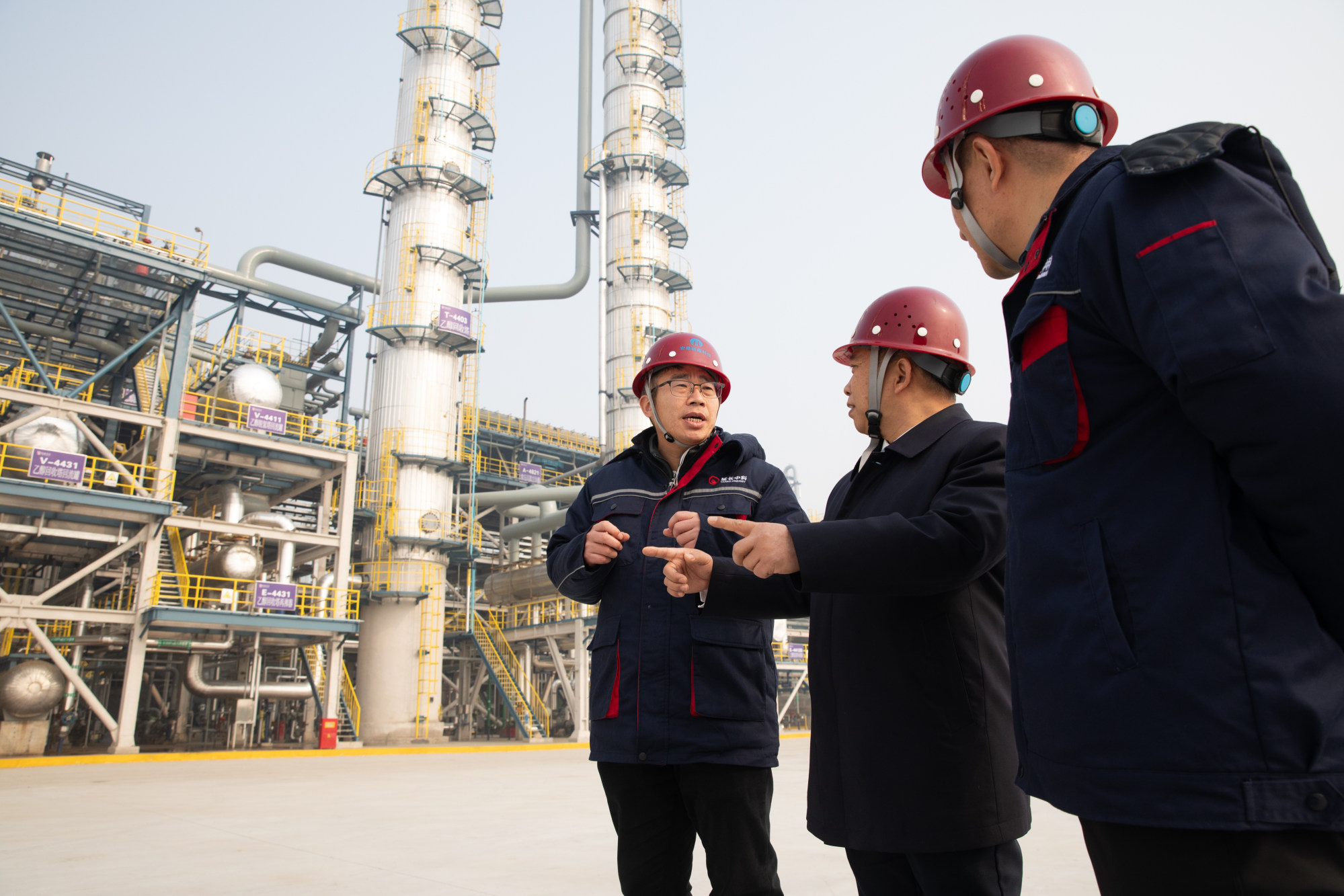
China launches test runs for world’s largest plant that can convert coal to ethanol
- Traditional ethanol production from corn or sugar cane competes with food supply, with China’s rising grain prices also posing a challenge
- Coal-based production line ‘vital’ for China’s food and energy security, co-developer Dalian Institute of Chemical Physics says in report on website
The world’s largest coal-based ethanol production plant has started test runs in southeastern China, state media reported.
The plant, which has an annual capacity of 600,000 tonnes, uses coal rather than crops as raw materials to produce ethanol – a petrol additive and valuable basic chemical. This is expected to ease the pressure on China’s food sources while reducing its dependence on fuel ethanol imports.
Ethanol is a clean, renewable energy source with a density similar to petrol. Anhydrous ethanol, with a concentration of over 99.5 per cent, can be blended with petrol to improve exhaust emissions and enhance fuel combustion performance.
Traditional ethanol production from corn or sugar cane competes with food supply, with China’s rising grain prices also posing a challenge. Using low-grade coal, a mineral China has in abundance, can save millions of tonnes of grain a year.
“The new production route is vital for China’s food security, energy security and the chemical industry supply chain,” the Chinese Academy of Sciences’ Dalian Institute of Chemical Physics (DICP) said in a report on its website.
China’s corn-based ethanol fuel production seen threatening food security
The coal-based plant in Huaibei, Anhui province, uses advanced technology jointly developed by the DICP and the state-owned Shaanxi Yanchang Petroleum Group, state news agency Xinhua reported on Friday.
The new technology, called DMTE, produces methanol from coke oven gas – a by-product of coke production – which then reacts with other materials to generate ethanol. It can enable large-scale production of ethanol not only from coal, but natural gas or gas from steel plants as well, according to the DICP report.
China is the only country known to have deployed the technology on an industrial level.
As ethanol can be transformed into ethylene or replace ethylene in some reactions as chemical feedstock, it possesses the dual characteristics of being both an excellent energy product and a bulk chemical raw material that can be used to make hundreds of related products.
Global ethanol production currently stands at around 100 million tonnes. Produced mainly from crops like corn, cassava, sugar beet and sugar cane by the United States and Brazil, the chemical largely finds use as fuel ethanol.
China has a significant demand for fuel ethanol but faces a severe shortfall. Last year, it produced about 2.7 million tonnes of fuel ethanol through fermentation of aged grain, but a market gap of 10 million tonnes meant it was heavily reliant on imports.
The coal-to-ethanol team, led by DICP director Liu Zhongmin, developed their environmentally friendly DMTE pathway after researching non-crop ethanol production methods since 2010.

In 2017, the team helped to design the world’s first 100,000-tonne coal-to-ethanol production line, set up in northwestern Shaanxi province. The researchers have since optimised the reaction process and reduced production costs, by replacing the original costly catalysts with non-precious metals.
In June last year, China officially achieved international standards in coal-to-ethanol production with trial runs for a 500,000-tonne facility featuring only domestically made equipment in Yulin, also in Shaanxi. It is now the second-largest such facility in the world, behind the Huaibei plant.
“As of now, 13 industrial facilities [including two overseas ones] plan to use DMTE technology, constituting an ethanol production capacity of 3.95 million tonnes per year,” the DICP report said.

